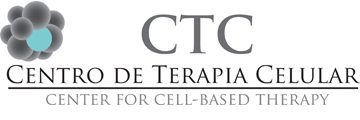 |
Aparecida Maria Fontes |
|
| Education |
1984-1988 Graduated in Biologic Sciences, Faculty of Philosophy, Science and Letters of Ribeirao Preto (FFCLRP) – University of São Paulo, Brazil |
|
| Research Interests |
Transcriptional mechanisms used by Hox genes in Cancer |
|
| Research Overview | Our research aims to elucidate the role of HOX genes and their transcriptional regulation in cancer progression and during development. HOX genes are transcription factors that have crucial roles in the earliest steps of embryogenesis, cell differentiation and are conserved in all animal phyla. In cancer, our focus is medulloblastoma that arises in cerebellum. Hox genes orchestrate the embryonic vertebrate hindbrain patterning during cerebellum development and might have a role in medulloblastoma progression. To investigate this, medulloblastoma cell lines and patient-derived cells will be molecularly characterized about HOX gene expression level and transcriptional mechanisms of their regulation. Also, we will perform in vitro and in vivo models to identify transcriptional mechanisms of HOX regulation during cancer progression. In development, we are studying blood and vascular cell formation. In the embryogenesis, it is known that blood and vascular cells derive from a common precursor cells, named hemangioblasts, which arise in the yolk sac and in the aorta-gonadal-mesonephros (AGM) mesenchyme. However, the early regulatory network of transcription factors that established the blood versus vascular fate has not been fully understood. We are interested to investigate the role of HOX genes which allow uncommitted cell becomes specified into blood cells or endothelial cells. Also, we are studying transcriptional mechanism regulation of HOX gene in this biological process. We will generate a human-specific cellular system to study early hemato-endothelial development in genetically modified human embryonic stem cells. One third interest is to develop human cell lines harboring synthetic wild-type and mutant FVIIIΔB and cell therapy models for Hemophilia A. For the latter, we will use endothelial or mesenchymal adult cells or endothelial-derived embryonic stem cells to compare the efficacy of these cells to deliver FVIII to a sufficient level and yield therapeutic effect using hemophilia A mice model. | |
| Lab Staff |
Gene Transfer Group Molecular and Cell Biology Technician |
|
| Collaborators |
Gil Cunha de Santis, M.D., Ph.D. Edson Garcia Soares, M.D., Ph.D. Elisabeth de Fátima Pires Augusto, PhD Kuruvilla Joseph Abraham, Ph.D.
|
|
| International Collaborators |
Gregory J. Riggins, M.D., Ph.D. Angelo A. Cardoso, M.D., Ph.D. Graça D. Almeida-Porada, M.D., Ph.D. |
|
| Facilities Coordination | Animal Model Investigation (IVIS Lumina) | |
| Selected Publications |
1. DE CASTILHO-FERNANDES A, FONTES AM, ORELLANA MD, PALMA PVB, MELO FUF, FREITAS MCC, PICANÇO-CASTRO V, COVAS DT. (2011). Human hepatic stellate cell line (LX-2) exhibits characteristics of bone marrow-derived mesenchymal stem cells. Experimental and Mol. Pathol. 91:664-672. |
|
